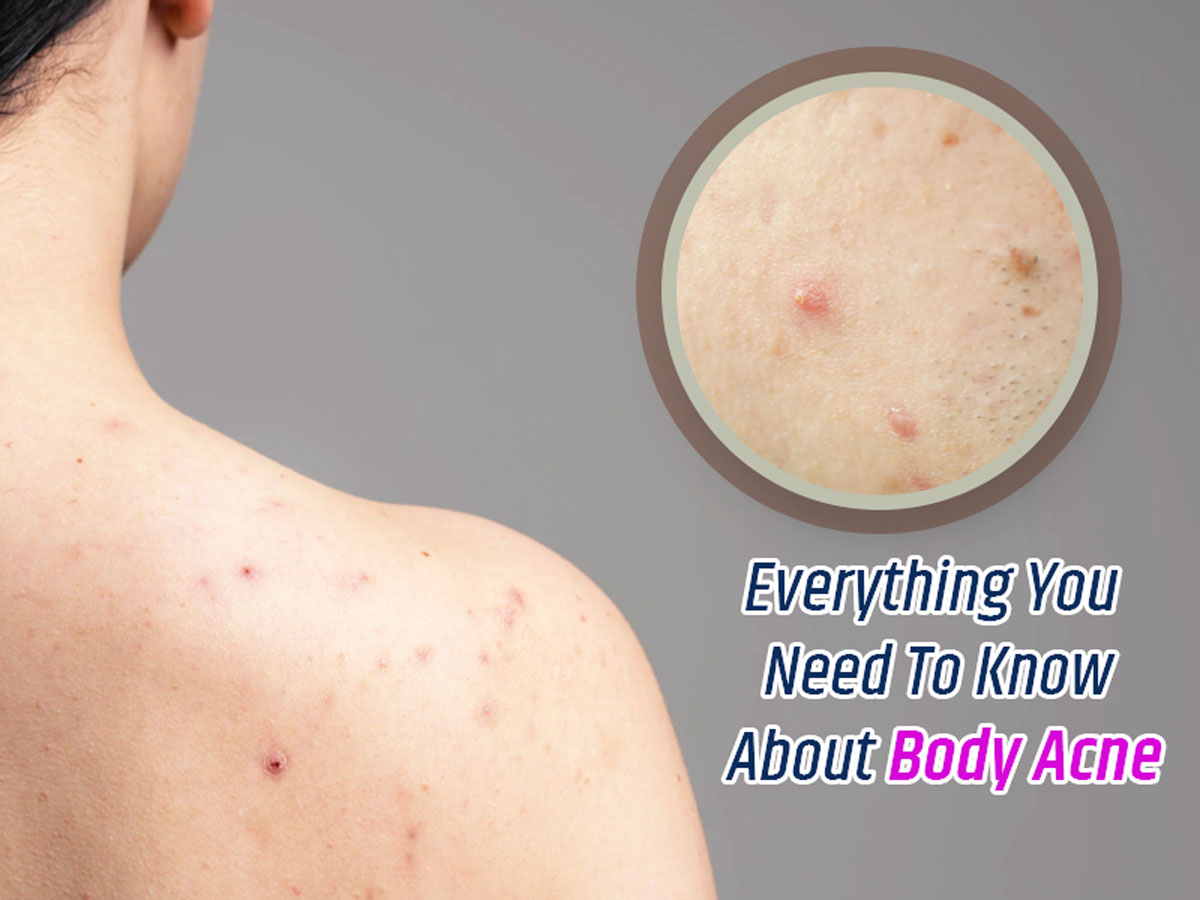Body Acne: Causes, Symptoms, and Solutions
In today’s world, where appearances often play a significant role in self-confidence, the emergence of body acne can be a distressing concern. It’s a topic rarely discussed openly, yet it affects a substantial number of individuals. This article aims to shed light on the lesser-known aspect of skincare—body acne. By exploring its causes, symptoms, and effective solutions, we’ll equip you with the knowledge needed to confidently tackle this common issue head-on.
What is Body Acne?

body acne
Body acne, scientifically known as acne vulgaris, is a skin condition that goes beyond the face. While facial acne often receives the spotlight, body acne is equally prevalent and can be just as troublesome. It typically manifests as pimples, whiteheads, or blackheads on various parts of the body, excluding the face. Understanding the types and common locations of body acne is the first step in effectively addressing this issue.
Symptoms of Body Acne
The journey to clear, healthy skin begins with recognizing the signs of body acne. It’s crucial to distinguish between regular breakouts and acne to implement the right treatment. Body acne often presents as red pimples, whiteheads, or blackheads on areas like the chest, back, shoulders, and buttocks. Alongside these visible signs, it can occasionally be accompanied by discomfort, itching, or tenderness. Identifying these symptoms early is key to effective management.
Causes and Triggers
Understanding what leads to the development of body acne is fundamental to its prevention and treatment. Several factors can trigger body acne, including hormonal fluctuations, genetics, sweat, and friction. By uncovering these causes, we can take proactive steps to minimize their impact on our skin.
Who is at Risk?
While body acne can affect individuals of all ages and backgrounds, certain demographics and risk factors can increase one’s susceptibility. Age, lifestyle, and genetics can play a significant role in determining who is more prone to developing body acne. Recognizing these risk factors can guide us in taking proactive measures.
Body Acne vs. Facial Acne
While acne is a common skin condition, it can manifest differently on the body compared to the face. These differences extend beyond appearance and include causes, treatment approaches, and skincare routines. Understand
Treatment Options
Managing body acne involves a spectrum of solutions, ranging from readily available over-the-counter products to prescription medications and dermatological procedures. Discover the effective treatment options that can help clear your skin and boost your confidence.
Home Remedies
If you prefer natural and DIY approaches to skincare, you’re in luck. We’ll explore a range of natural remedies for body acne, including ingredients like tea tree oil, aloe vera, and salicylic acid. These homemade solutions can be effective in managing body acne and promoting healthier skin.
FAQs
Q: What is body acne, and how is it different from facial acne?
A: Body acne, or acne vulgaris, is a skin condition that affects areas other than the face, such as the chest, back, shoulders, and buttocks. While similar to facial acne, it may have distinct causes and treatment approaches.
Q: What are the common symptoms of body acne?
A: Common symptoms of body acne include red pimples, whiteheads, and blackheads on various parts of the body. It can also be accompanied by itching, tenderness, or discomfort.
Q: What causes body acne, and what are the common triggers?
A: Body acne can be caused by factors like hormonal fluctuations, genetics, sweat, and friction. Common triggers include tight clothing and excessive sweating.
Q: Who is more susceptible to developing body acne?
A: While body acne can affect individuals of all ages, some may be more prone due to factors like age, genetics, and lifestyle choices.
Q: Are there effective treatments for body acne?
A: Yes, there are several treatments for body acne, ranging from over-the-counter products to prescription medications. Dermatological procedures are also available for severe cases.
Q: What are some natural remedies for body acne?
A: Natural remedies like tea tree oil, aloe vera, and salicylic acid can be effective in managing body acne. These ingredients have soothing and anti-inflammatory properties.
Q: How can I prevent body acne?
A: Prevention involves adopting a proactive skincare routine, including regular exfoliation, maintaining moisture balance, and practicing good hygiene.
Q: Can lifestyle changes and diet affect body acne?
A: Yes, lifestyle factors and dietary choices can influence body acne. Maintaining a healthy diet and managing stress can contribute to clearer skin.
Q: When should I consult a dermatologist for body acne?
A: Consult a dermatologist if you have severe or persistent body acne, as well as for guidance on personalized treatment options.
Q: How can I cope with the emotional impact of body acne?
A: Coping with the emotional challenges of body acne involves building self-confidence, seeking support from friends and professionals, and practicing self-care.
Conclusion
In closing, conquering body acne is not only achievable but also empowering. Armed with knowledge about its causes, symptoms, and effective treatments, you can embark on a journey toward smoother, healthier skin. Remember that skincare is a holistic endeavor, and with the right approach, you can confidently face the mirror and embrace your clear, radiant self.




